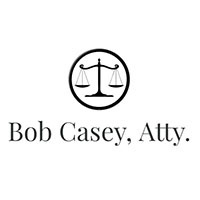Eagle Creek Estate Lawyer, Oregon
Sponsored Law Firm
-
 x
x

Click For More Info:
-
Law Office of Timothy J. Doherty
10 Crater Lake Ave Medford, OR 97504» view mapEstate Law Experience You Can Trust
The topic of wills and trusts can be confusing, but my job is to help you decide what’s right for you. Call me to set up a free consultation.
800-878-0640
Bob Casey
✓ VERIFIEDEstate, Wills & Probate, Corporate, Guardianships & Conservatorships, Business Organization
Bob Casey is a practicing attorney in the state of Oregon. He graduated from Seattle University School of Law in 1991 with his J.D.
Toby Borst
Business Organization, Franchising, Banking & Finance, Wills & Probate
Status: In Good Standing
Cynthia Allen Mccormick
Elder Law, Commercial Real Estate, Estate Planning
Status: In Good Standing Licensed: 34 Years
Eric Deweese
Commercial Real Estate, Estate Planning, Personal Injury, Accident & Injury
Status: In Good Standing Licensed: 15 Years
Lee A. Meadowcroft
Federal, Government, Estate Planning, Estate
Status: In Good Standing Licensed: 30 Years
Michael James Buroker
Wills & Probate, Divorce & Family Law
Status: In Good Standing Licensed: 38 Years
Eric Deweese
Commercial Real Estate, Estate Planning, Personal Injury, Accident & Injury
Status: In Good Standing Licensed: 15 Years
Blake V Robinson
Landlord-Tenant, Wills & Probate, Employment, Divorce & Family Law
Status: In Good Standing Licensed: 19 Years
 Timothy J. Doherty Medford, OR
Timothy J. Doherty Medford, OR Practice AreasExpertise
Practice AreasExpertise

